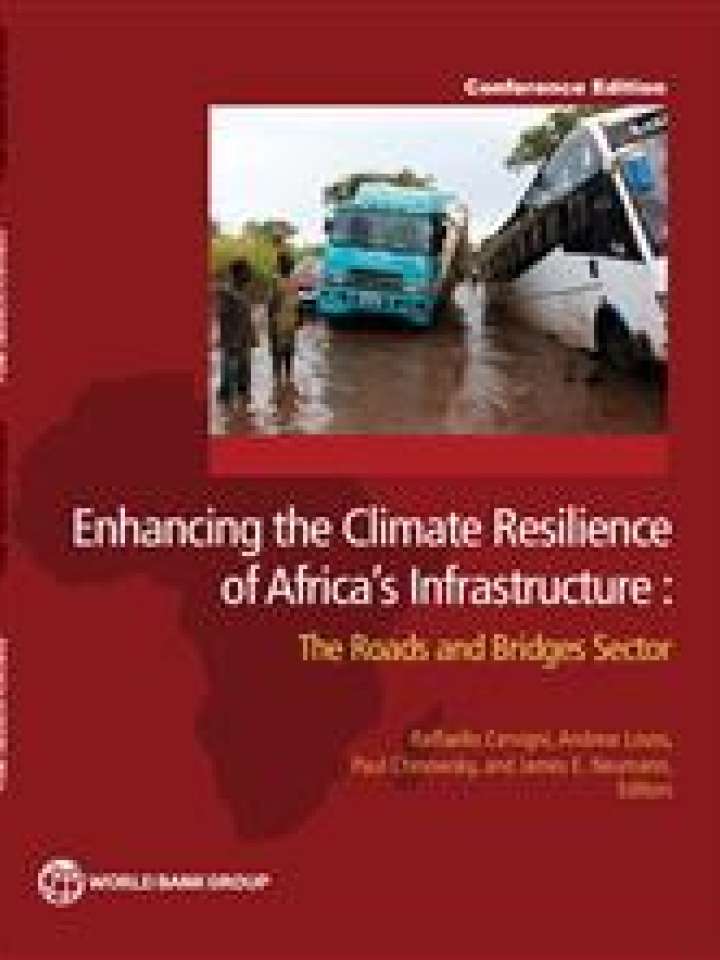Enhancing the climate resilience of Africa’s infrastructure: The roads and bridges sector (conference edition)
This report examines the implications of climate change for Africa’s road connectivity, and practical steps that can be taken now to minimize the associated risks. The goal of this study is first to quantify the cost of climate change to the African roads sector, and second to assist decision makers in identifying the most cost-effective adaptation approach. This study provides a basis for making recommendations to regional or sub-regional organizations, road sector ministries and agencies at the country level, along with ministries of finances and planning; and international development partners.
A key finding is that, in the period from the present to 2050, climate change could cause:
- Direct damages: tens of billions of dollars in damages to roads, which will require additional maintenance to preserve basic serviceability; preliminary estimation of damage to bridges suggests costs may be even higher (in the order of $30 billion, mean estimate).
- Substantial system disruption: apart from increasing maintenance costs, climate changes will cause the disruption of road links, interrupting the flow of goods and people, to the tune of 100 million days of disrupted road links by 2050, all of which has a substantial economic cost.
The main conclusions of the report are:
- Adequate road maintenance is the most critical and most efficient way of reducing the impact of a changing climate on the road system;
- Simply ignoring climate change is not an option;
- Proactive adaptation in response to temperature increase is a no regret option;
- The case for proactive adaptation in response to precipitation is not as clear cut, and needs to be assessed case by case; and
- Better information on the benefits of avoiding climate-related disruption can inform decisions on proactive
adaptation.
This book is the second volume in the Enhancing the Climate Resilience of Africa Infrastructure series.
Explore further
